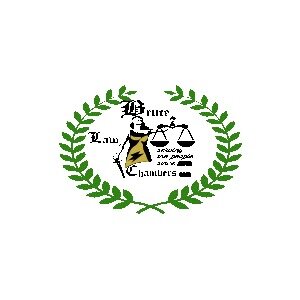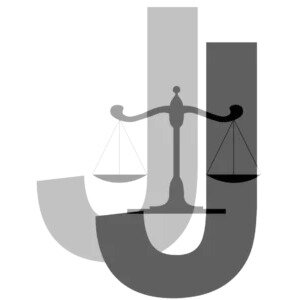Best Faith-Based Law Lawyers in Kingstown
Share your needs with us, get contacted by law firms.
Free. Takes 2 min.
List of the best lawyers in Kingstown, Saint Vincent and the Grenadines
About Faith-Based Law in Kingstown, Saint Vincent and the Grenadines
Faith-Based Law in Kingstown, Saint Vincent and the Grenadines, refers to the legal principles and regulations that govern issues at the interplay of law and religion. In this jurisdiction, such laws might cover matters like the governance of religious institutions, faith-related family issues, and the protection of religious freedoms. It respects the predominant Christian faith while also encompassing legal challenges faced by minority religions. Faith-Based Law in this region seeks to balance religious practices with public policy and human rights as outlined by both local and international legal frameworks.
Why You May Need a Lawyer
There are several circumstances where individuals might require legal assistance with Faith-Based Law in Kingstown:
- Disputes within religious institutions over governance and practices.
- Legal issues concerning marriage, divorce, or child custody within a religious context.
- Problems related to freedom of religion and religious discrimination.
- Concerns about compliance with local regulations while maintaining religious practices.
- Representation before local courts in cases involving religious issues.
A specialized lawyer can help navigate these unique challenges by providing legal representation and ensuring that the rights of all parties involved are protected.
Local Laws Overview
In Kingstown, Saint Vincent and the Grenadines, the legal framework is heavily influenced by a combination of statutory laws and case law. The Constitution guarantees freedom of religion, and this right is preserved by various other legislations. Key aspects that are relevant to Faith-Based Law include:
- The Constitutional right to freedom of religion and protection against religious discrimination.
- Statutes related to family law that accommodate religious practices in marriage and divorce.
- Employment laws that address discrimination based on religious beliefs.
- The role of traditional beliefs and how they are reconciled with formal legal processes.
Frequently Asked Questions
What constitutes a faith-based legal issue?
A faith-based legal issue typically involves any legal matter that is centered on or influenced by religious beliefs, practices, or institutions.
Can religious customs be recognized in legal proceedings?
Yes, religious customs can be considered in legal proceedings, particularly in matters like family law, where cultural practices are acknowledged.
What rights do individuals have in practicing their religion?
The Constitution of Saint Vincent and the Grenadines guarantees the freedom to practice religion without interference from the state, barring any contraventions of public order and morality.
Is there legal protection against religious discrimination in the workplace?
Yes, there are laws in place that protect individuals from discrimination based on religion in the workplace and other areas.
How are disputes within religious institutions typically resolved?
Disputes within religious institutions may be resolved internally through ecclesiastical procedures or externally through the civil courts when necessary.
Can religious organizations own property?
Yes, religious organizations can own property, but they must comply with local laws regarding registration and taxation.
What legal recourse does one have if denied a service based on religious belief?
Individuals can file a complaint with the appropriate human rights or anti-discrimination body or pursue a case in the courts.
How can individuals ensure that religious marriages are legally recognized?
It's important to comply with both religious and civil registration requirements to ensure that a marriage is legally recognized.
Do faith-based schools have special legal considerations?
Faith-based schools must follow national education guidelines but may have additional latitude regarding religious instruction.
What is the role of a lawyer in faith-based legal matters?
A lawyer provides guidance on rights and obligations, represents clients in disputes, and ensures compliance with laws affecting faith-based issues.
Additional Resources
For more information or assistance with Faith-Based Law in Kingstown, the following resources may be helpful:
- The Ministry of National Reconciliation, the Public Service, Labour, Information and Ecclesiastical Affairs: Offers guidance on ecclesiastical matters.
- The Human Rights Association of Saint Vincent and the Grenadines: Provides support and legal guidance concerning religious rights.
- Local Bar Associations: Can provide referrals to lawyers specializing in Faith-Based Law.
- Non-Governmental Organizations focusing on religious freedom and human rights.
Next Steps
If you require legal assistance in Faith-Based Law, consider the following steps:
- Identify the specific legal issue you are facing.
- Document relevant information and gather evidence related to the situation.
- Consult with a legal expert specializing in Faith-Based Law to understand your rights and options.
- If necessary, proceed with legal representation to pursue or defend your case in court.
Securing experienced legal assistance can help ensure that your religious rights are protected and that all legal matters are handled appropriately.
Lawzana helps you find the best lawyers and law firms in Kingstown through a curated and pre-screened list of qualified legal professionals. Our platform offers rankings and detailed profiles of attorneys and law firms, allowing you to compare based on practice areas, including Faith-Based Law, experience, and client feedback.
Each profile includes a description of the firm's areas of practice, client reviews, team members and partners, year of establishment, spoken languages, office locations, contact information, social media presence, and any published articles or resources. Most firms on our platform speak English and are experienced in both local and international legal matters.
Get a quote from top-rated law firms in Kingstown, Saint Vincent and the Grenadines — quickly, securely, and without unnecessary hassle.
Disclaimer:
The information provided on this page is for general informational purposes only and does not constitute legal advice. While we strive to ensure the accuracy and relevance of the content, legal information may change over time, and interpretations of the law can vary. You should always consult with a qualified legal professional for advice specific to your situation.
We disclaim all liability for actions taken or not taken based on the content of this page. If you believe any information is incorrect or outdated, please contact us, and we will review and update it where appropriate.










